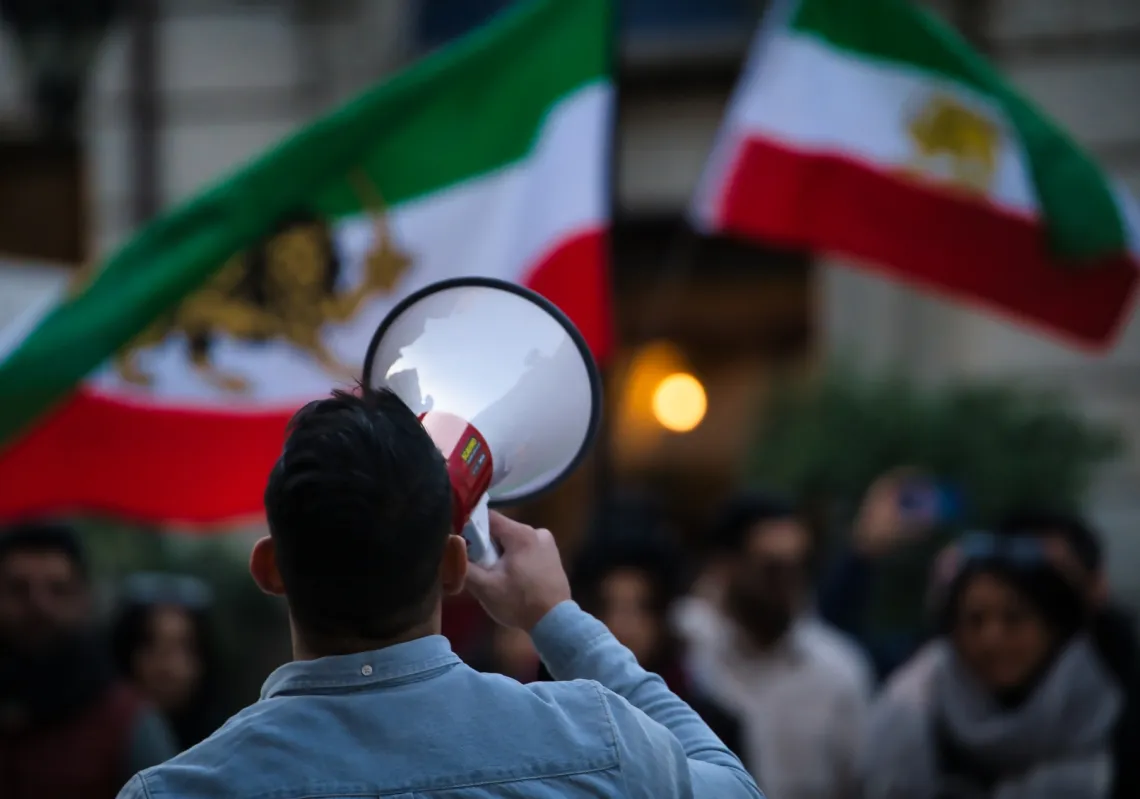The EU bordering Iraq and Iran and the most populated EU member, though secular, with a Muslim majority. This was the ground breaking political scenario which seemed possible, if not probable, in the recent past, and is now increasingly unlikely.
One of the favourite slogans Nicholas Sarkozy used throughout the French presidential campaign was that “Turkey is in Asia Minor.” For electoral reasons, combined with an outdated and miss-conceived notion of geopolitics, this is how the now French president justified why, if he was elected, he would be against Turkey’s bid to join the European Union. This scepticism regarding Turkey’s EU membership does not confine itself to France. Germany’s Chancellor Angela Merkel, in a more discrete manner but probably for the same combination of reasons as Sarkozy, has made public her position against the process. Instead, both France and Germany prefer the idea of a “privileged partnership.” Moreover, EU members such as Greece or Cyprus will never be in favour of Turkish membership whilst the situation in Cyprus does not reach a breakthrough. Considering that the treaty regarding a country’s admission to the EU requires the unanimous approval of all member states, the prospects of Turkey look quite poor.
The biggest supporter of Turkey’s EU membership has traditionally been the United States. In fact, Turkey is crucial for US interests in the Middle East. First of all, it constitutes an example to the Muslim world of a very good relationship between the US and a country that, though secular, has a Muslim majority. It is a major NATO country which borders Iraq and Iran. It has performed an important role in the attempts to reach a peace deal between Syria and Israel. And it has a usually underestimated influence in Afghanistan. For all these reasons, Obama chose to go to Turkey during his first official visit to Europe, where he declared, when addressing the Turkish Parliament, that “the United States strongly supports Turkey’s bid to become a member of the European Union.”
So, contrary to the US enthusiasm for Turkey’s EU membership bid, why have the EU leaders been breaking the promises made a long time ago by their predecessors, and disappointing the Turks up to the point that the percentage of Turkey’s population supporting its bid to join the EU fell, between 2004 and 2006, from 73% to 43%?
No one in his right mind will argue that to integrate Turkey in the EU is not a huge challenge, arguably the biggest one the EU ever faced in terms of its enlargement. The list of problems is simply huge. First of all, in the context of a severe financial crisis, the willingness to divert EU funds from much in need member states to a country of more than 70 million people, which is still well below EU economic standards, and which presents a big disparity between its North West and the South East, is a major “scare factor”. Secondly, the mere prospect of a very numerous and very young population emigrating to all corners of the EU in the search for a better life is something that provokes headaches for EU policy makers, even though the full integration into the Schengen space would take at least several years. Furthermore, the unresolved Kurdish issue and the PKK’s constant threat of terrorist attacks constitute another setback.
In the EU’s perspective, perhaps the biggest reason for scepticism is still the internal political instability in Turkey. There are several recent examples of this instability, such as the 2007 episode when the generals menaced with a coup if Erdogan nominated Abdullah Gül as President, for the reason that his wife’s Islamic headscarf threatened Ataturk’s secular principles. Having lost this “battle”, the generals pressed Turkey’s chief prosecutor to present a case before the Constitutional Courtwith the purpose of banning Erdogan’s Justice and Development Party, on the charges of seeking to impose the Sharia law. The court’s verdict was against the generals’ claim, but the AK party is said to have faced real danger of closure. Also, strong scepticism has been raised regarding Erdogan’s increasingly autocratic leaning in the dealings of what has been known as the “Ergenekon” case. The planning of a coup by a group of retired military officers, journalists, judges, union leaders, and artists, to overthrow the Government was faced by the Turkish authorities and police with an intimidating response, bringing into custody dozens of suspects from all sections of society, including short-term arrests and interrogation of several AK political opponents. To make things worse, this whole case is partially based on a very shaky testimony by one person who allegedly is a former Turkish intelligence officer.
All this seems to go against some of the main conditions the EU demanded Turkey to fulfil at the time of membership talks: democratic consolidation, improvements in civil liberties and human rights, and assurances that the Turkish military are out of politics. In spite of Abdullah Gül’s official visit to Brussels earlier this year to renew the message of Turkey’s commitment to the EU project, Turkey is already considering where to turn for other political alliances, tired of so many demands and no positive outcomes. Though Turkish leaders and Turkish people do not put aside the idea of joining the EU one day, the current mood in the country is that “if the EU wants us to join, let it come to us.”
While EU leaders are still frightened by all these issues, which important aspects are they missing? Though the United States political position regarding Turkey is much more comfortable than the EU one, since it does not have to incorporate that huge country into its territory, current EU leaders should acknowledge, as the United States does, all the positive aspects of engaging Turkey by offering it EU membership. To face the political challenges in the Middle East, the European Union would gain much in having Turkey not as a bitter ally, but as a one of its own members. Either in Iraq or Afghanistan, in the role of achieving a peace deal between Israel and Syria, in the efforts to solve the Israeli-Palestinian issue, in contributions to EU and NATO-led peace-keeping missions and other security related issues, in constituting a very important alternative for the EU’s energy options, Turkey would be a crucial ally.
It has been argued that religion is not that relevant in this whole context since Turkey is a secular country. These claims ignore the fact that a significant part of the identity of the Turkish population is still a Muslim identity, and this is perhaps the most important aspect of the whole issue of Turkey joining the EU, and also probably the most feared one by some EU leaders. These fears prevent EU policy makers acknowledging that bringing Turkey inside the EU would be an enormous step to overcome many of the traditional suspicions and preconceptions within the EU regarding the Muslim world, and within the Muslim world regarding the EU. It would also put a definite end to the idea that the EU is a Christian club.
In the end, what this major political and societal breakthrough would also mean is that the European Union, no longer having Turkey as a buffer zone between Iraq, Syria, Iran, and the Middle East, but as one of its member states, would be positively forced to adopt a more active and determined stance in its policy towards the region. This would be likely to result in more active attempts to solve problems such as the Israeli-Palestinian conflict, something which would be of great benefit for the EU, the US, and the whole Middle East.








